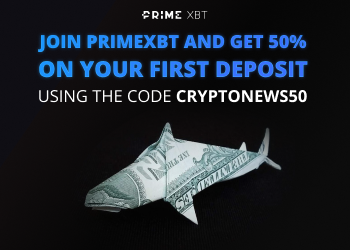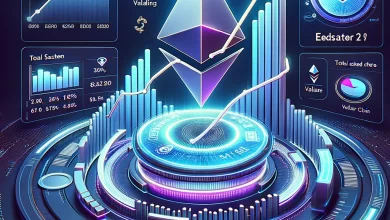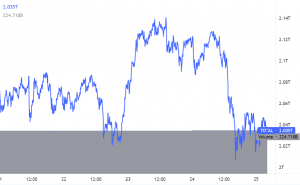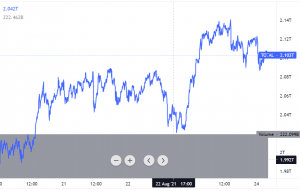
Ethereum’s EIP-1559 ‘Doesn’t Deliver’ As It’s ‘Not Meant to Reduce Fees’

Ethereum Improvement Proposal (EIP) 1559 is one that keeps on giving – discussions, that is. What it does not do is “deliver,” argued Founder and CEO of popular Ethereum (ETH)-focused wallet manager MyCrypto, but receiving numerous counterarguments along the way.
The contested and much-debated EIP-1559 has been through reports of “likely” miner support to a failed “educational show of force.” That said, this bringer of a token burn mechanism and automatic fee setting is included in the upcoming upgrade, known as London hard fork, and scheduled for this July.
While many users got interested in this proposal, “unfortunately the social traction seems to be mostly due to the not-so-subtle promises of “$ETH price go up!” and/or “TX fees go down!”, [while] the early promises of overpayment reduction, market efficiency, fee stability, and even reduced TX fees seem to be…..not actually a thing, said Monahan in her Twitter thread.
EIP-1559 is “a fundamental change to an expansive, live network made of people, machines, systems and subsystems, each with massive financial incentives,” and while Monahan said she was even willing to “sacrifice a perfectly perfect solution if it meant more people were more empowered to better the system” – one must always keep in mind how the proposals operate in reality, not in theory.
The reality that seems to be missing from EIP-1559 is that people pay what was recommended by clients, wallets, and random pricing APIs, or a bit less than the amount they profit off the execution of a transaction, meaning ‘the prevailing market price’.
While the gas price or priority fee can be affected by many EIPs, miners, the need for network security, and other factors, “the only thing that determines what people pay is what the market chooses to pay,” said Monahan. The market sets an educated, what is, an efficient price only when participants “accurately weigh their needs vs desires vs time till mined vs cost (vs profit)” – which people are not good at, in addition to no accurate tools existing.
And since EIP-1559 seems to ignore much of this, she said, nothing will change in terms of what users pay for transactions, or in terms of reducing complexity for the user. “When [ETH] price goes up your [transaction fees] are [gonna] be go waaaay up,” Monahan claimed.
The CEO added that Geth, Etherscan, EthGasStation, MetaMask, MyCrypto, and everyone else currently determines the gas prices by looking at the current transactions, and then they show users a range of costs with “their roughly associated `time til mined` values so the user can roughly indicate where their personal cost vs time lines intersect.”
She concluded that,
“If the information wallets/ui’s/apis/people are using to determine the [transaction] cost isn’t going to change… And the [transaction] cost isn’t going to decrease for users (until there is return to bear -> significantly lower demand)… What exactly are we aiming to accomplish here?”
‘Reducing overpaying transaction fees, not lowering fees’
The debate then further developed over the gas price.
Research scientist at the Ethereum Foundation Barnabé Monnot argued that the main point is to not conflate the dynamics of the gas price seen now with the dynamics of the priority fee under the incoming EIP. These are structurally different, and this is the source of most of the proposal’s benefits to the user experience (UX).
“So applying (hard-won) lessons on the behaviour of gas prices today would probably lead to poor UX under 1559 and negate most of its benefits. Wallets can still rely on most of the infrastructure they developed so far, and refine it over time once 1559 goes live though,” said Monnot.
Per developer James Hancock, EIP-1559 reduces overpaying transaction fees, not reducing fees. “People estimating the fee based on other people’s estimations is exactly how we have an overpriced market,” he claimed, adding that with EIP-1559, the user asks the protocol what the base fee is and pays for it. “The miner tip will rarely change and has its own nuances people get lost in. Don’t get lost! 1559 is a better fee mechanism hands down.”
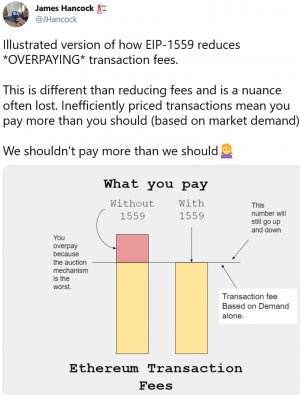
Other commenters too made their counterarguments to Monahan’s thread, with many stating that nobody claimed that the proposal would lower the transaction fees, just that everyone in the same block would pay the same price, and therefore bid high without worrying about overpaying, as well as that it promised negative inflation which it will deliver.
Some opined that the EIP moves value capture from miners to ETH holders; that the supply of block space can now respond elastically to demand up to 2x the average size, which mitigates periods of rapid demand with no tradeoff in long-term blockchain size; and that Monahan is just being a contrarian.
Ethereum Name Service (ENS) founder and lead developer Nick Johnson argued that Monahan may have gotten a “bad advice” on UX. “Unless a user absolutely needs their transaction to be included in the next few blocks, they should not have to set the miner tip (“priority fee”) to anything above the minimum,” he said, but set the maximum fee instead.
Meanwhile, the tips above the minimum will be used “almost exclusively” by users who “absolutely need” their transactions included in the next few blocks, which will mostly be an automated processes, said Johnson, adding,
“If it works as designed, I think it *will* reduce overpayments, provide more predictable fees, and a better UX. It certainly won’t deliver *lower* fees, and anyone who tells you they know what will happen to the ether price is lying or delusional.”
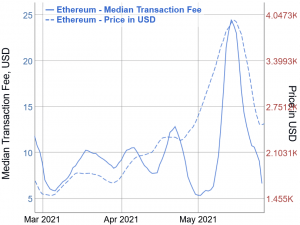
____
Other reactions:
This thread is embarrassing. EIP-1559 lets you pay a tip on top of the base fee, so yes being getting your transactions included in a block is dictated by market demand. Its about making the auction more transparent which leads to less users overpaying.
— freddy (@freddycoen) May 27, 2021
__
__
Lots of discussion about 1559 today, but once point that I didn’t see made very clearly is that legacy transactions… https://t.co/lGKRLjQ9az
__
EIP 1559 hasn’t been “researched.” Analysis focuses on an average user that has neither time nor price preference and doesn’t stress the gas limit.
It ignores that any particular user will actually have a preference.
PoS modeling has similar fatal flaws.— Jan Brrabski (@brrabski) May 27, 2021
__
__
____
Learn more:
– What EIP 1559 Brings to the Ethereum Table
– Ethereum Fees To Stay High Even With EIP-1559 – Another Analyst Says
– Bitcoin Transaction Fee Estimators: What Are They and How Do You Use Them
– Why Ethereum is Far From ‘Ultrasound Money’
– The Ethereum Economy is a House of Cards
Source: cryptonews.com
View original post

